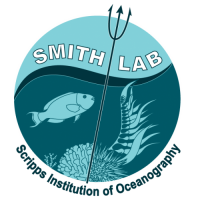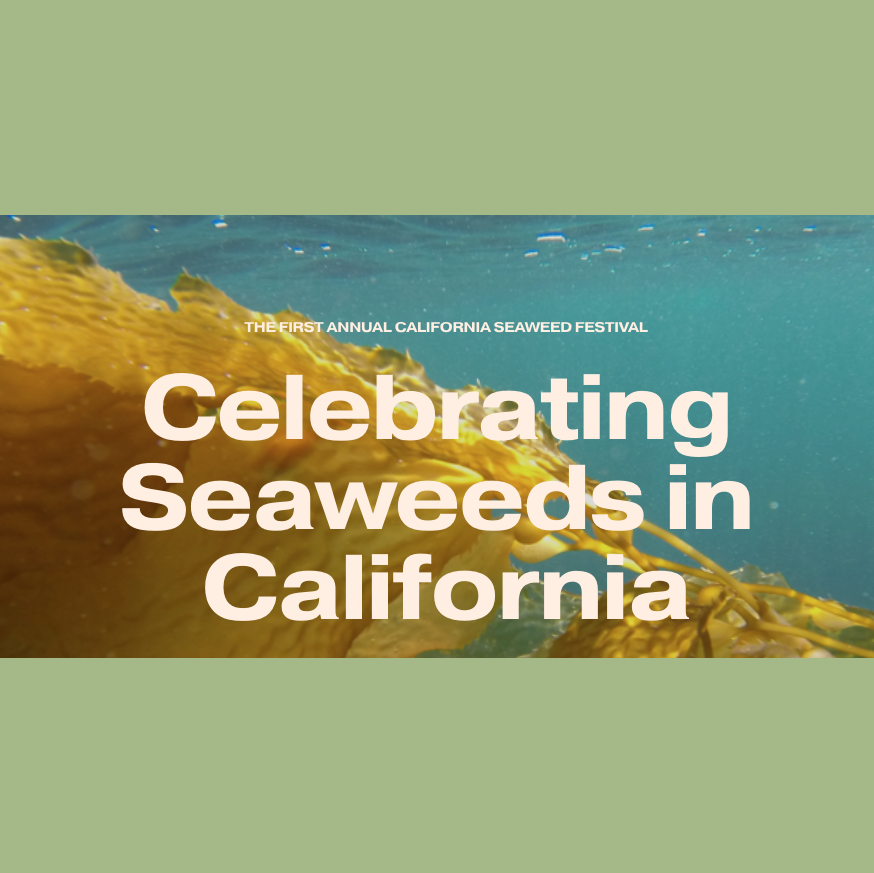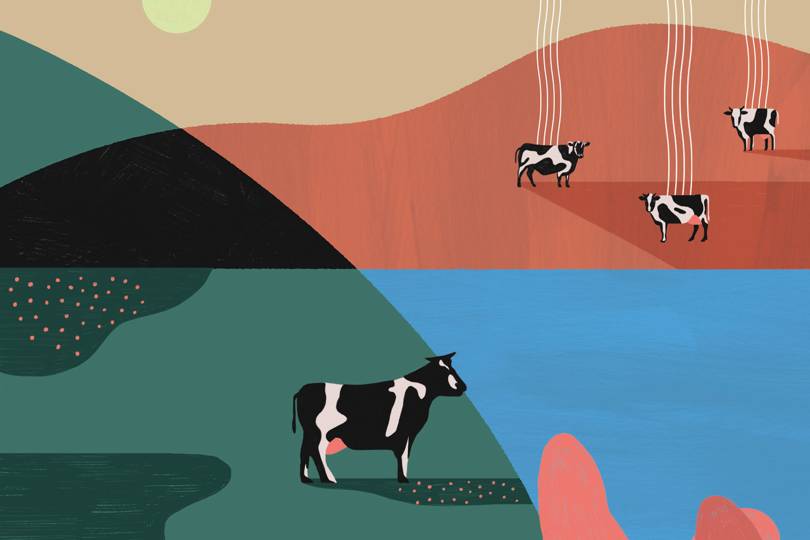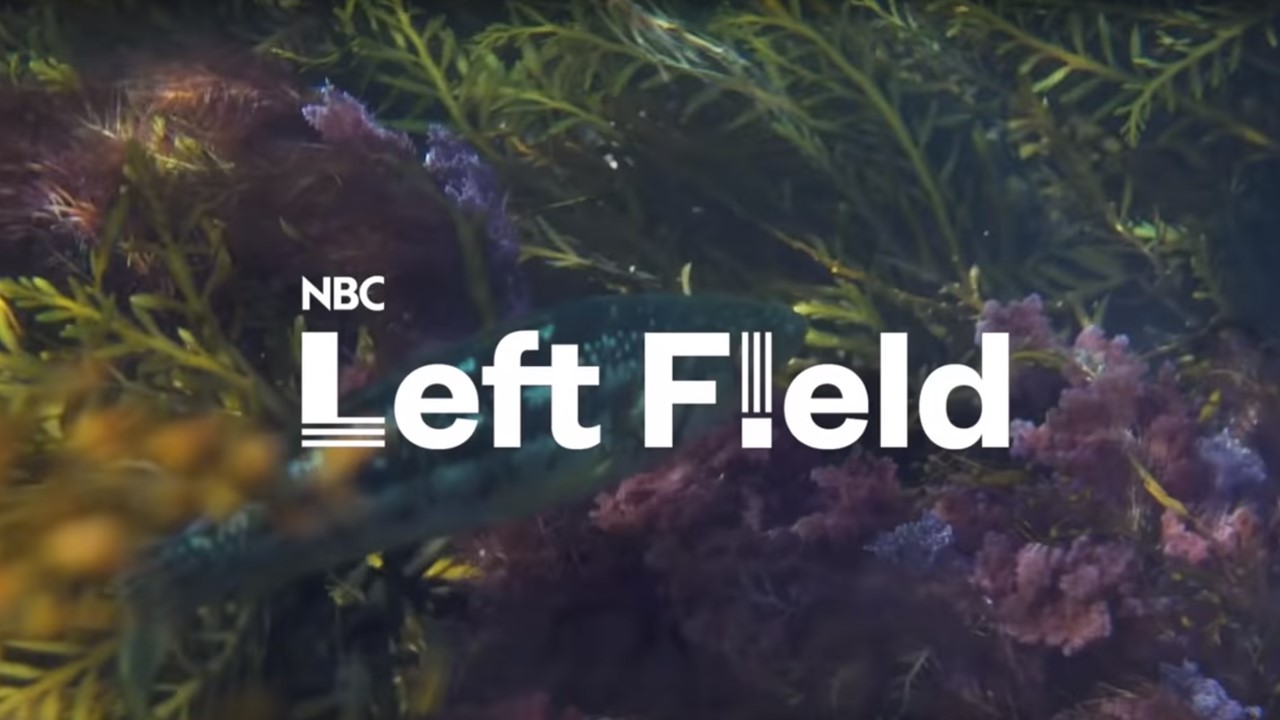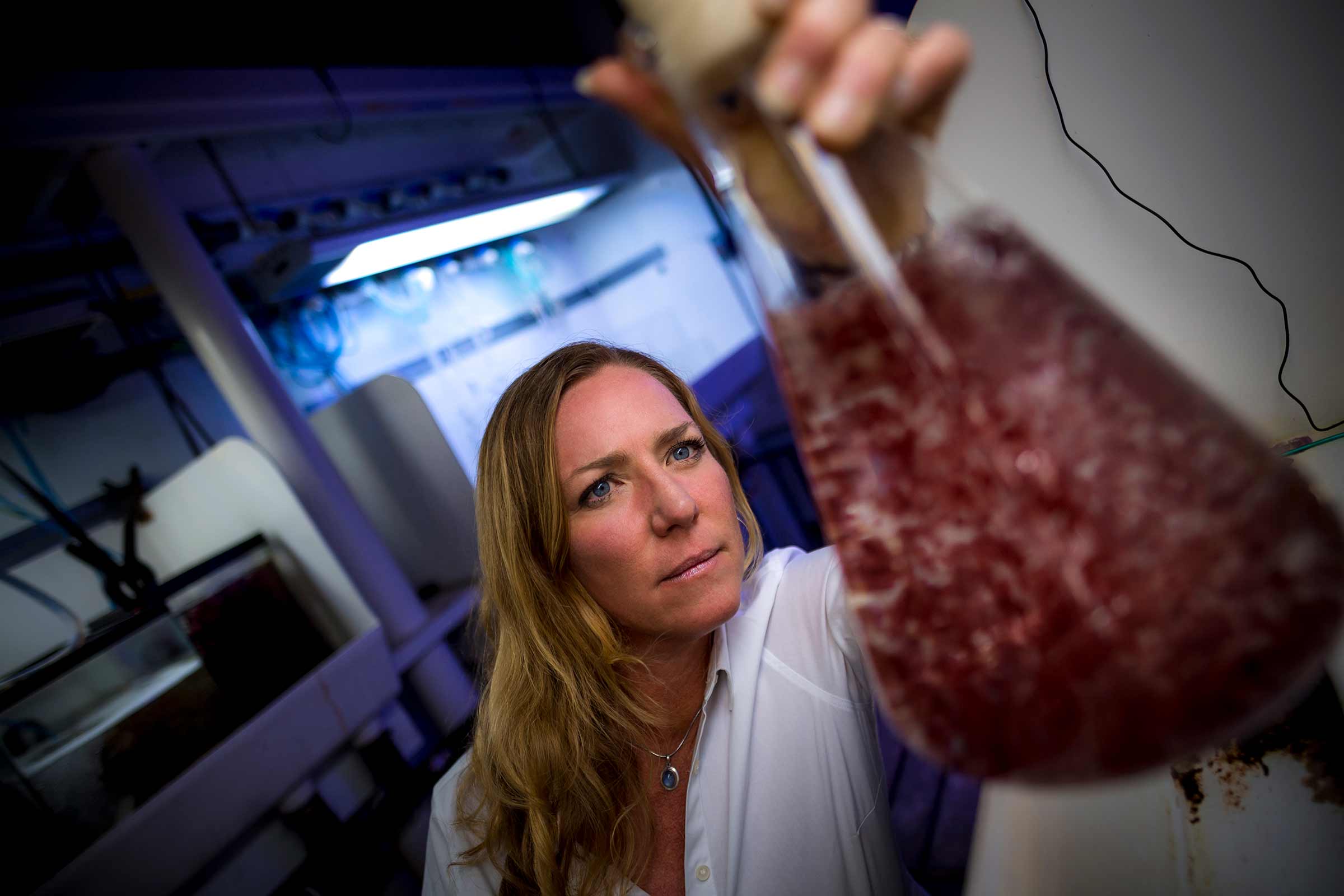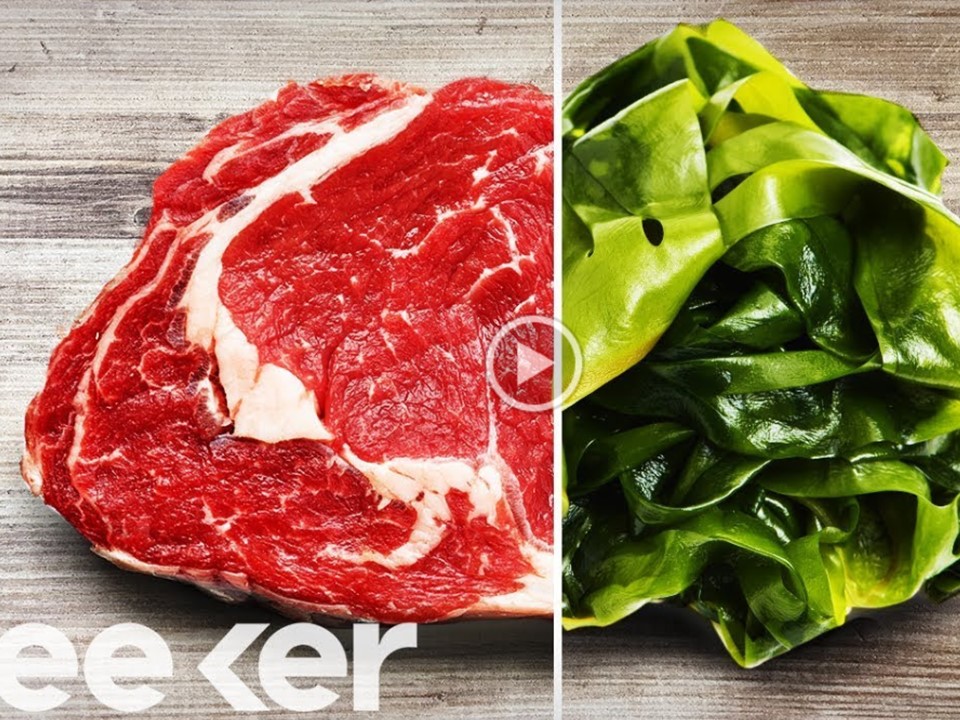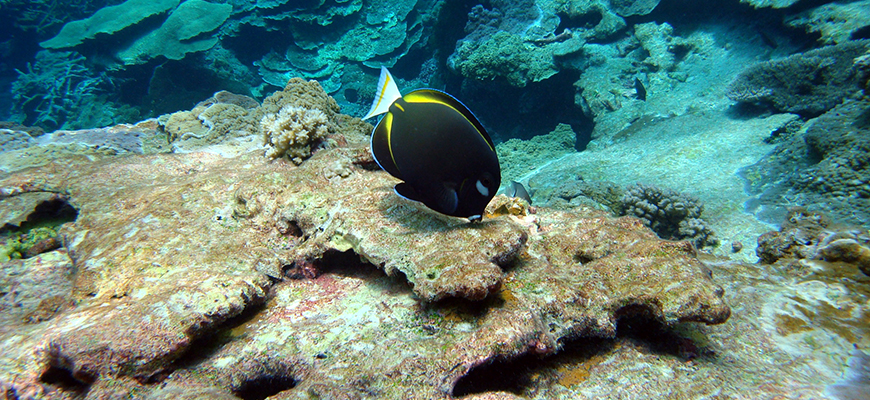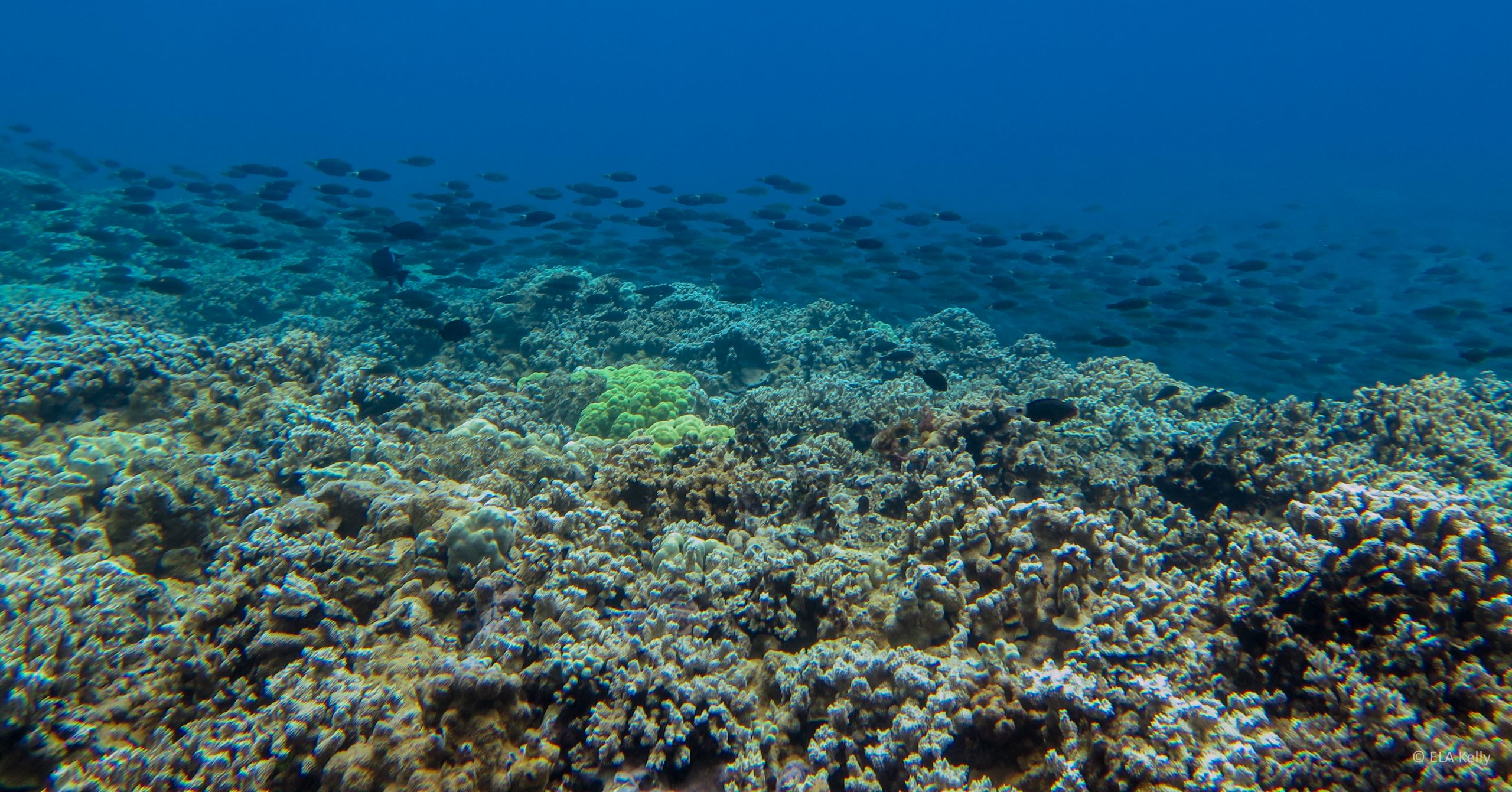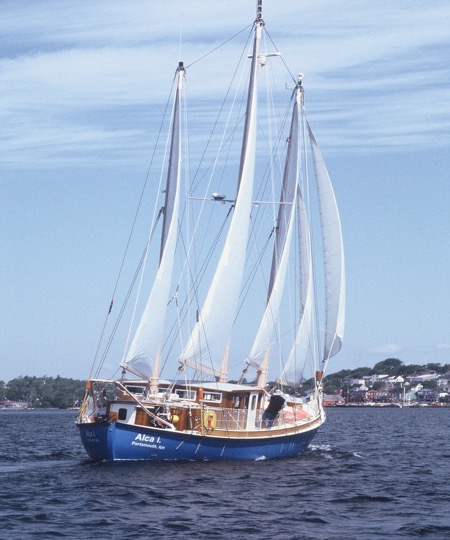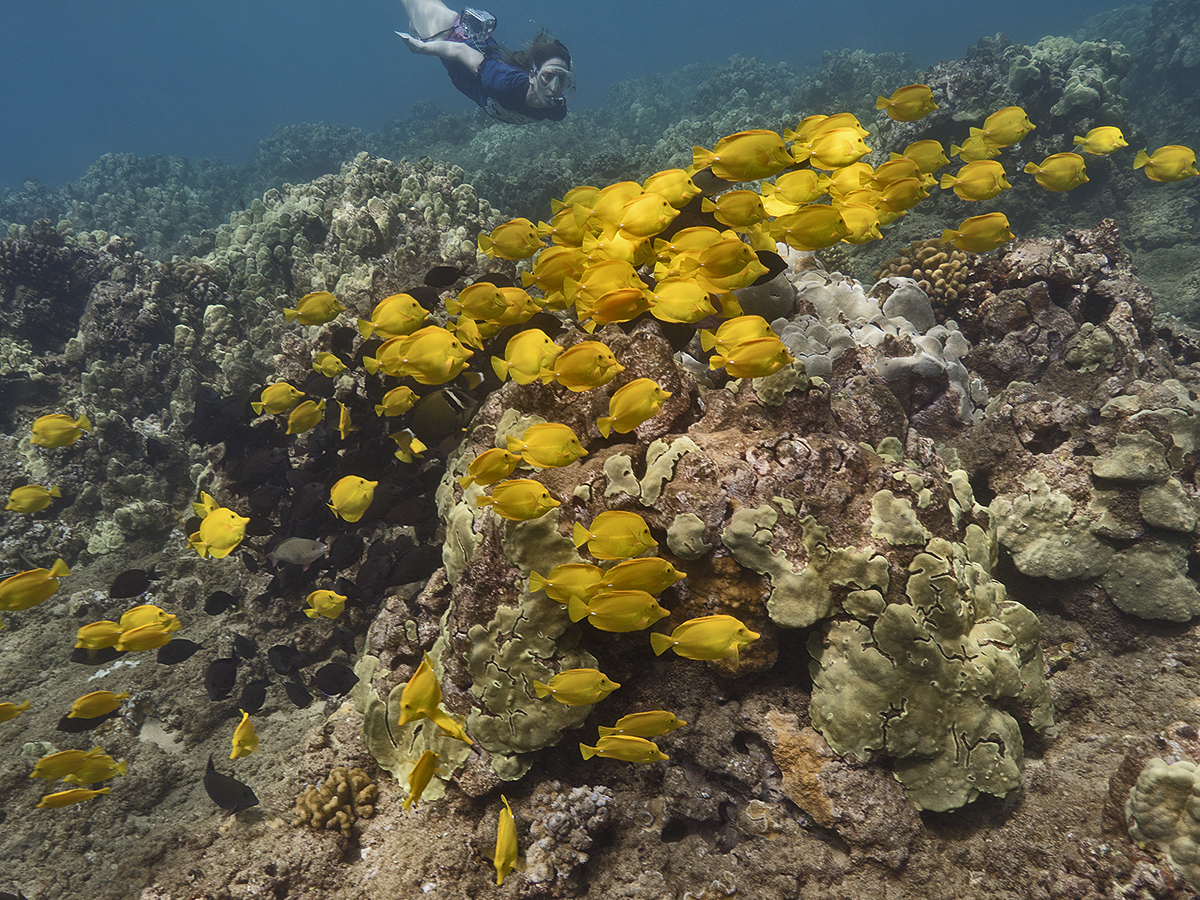Smith Lab will be involved in the first-annual “California Seaweed Festival” taking place virtually from Nov. 16-21, 2020. This is a free event bringing together scientists, artists, entrepreneurs, farmers, and seaweed-enthusiasts alike to celebrate the importance, diversity, and beauty of seaweeds. Professor Jennifer Smith will be a panelist for Seaweed Science; staff member Brant Chlebowski will be presenting on Seaweed as Food, and PhD … Read More
Cow burps & the scientists waging war against them, featured in WIRED
Dr. Jen Smith was recently interviewed and featured in a WIRED article where she discussed how her work learning to cultivate Asparagopsis taxiformis in the lab will help Californian dairy farmers to cut emissions by 2030. The article mentions her work with Elm Innovations and introduces a multitude of scientific methods currently being explored by scientists worldwide to reduce methane emissions by the livestock … Read More
The Jeffrey B. Graham Perspectives on Ocean Science Lecture Series: Food, Feed, & Climate Change
Dr. Jennifer Smith and lab staff researcher, Brant Chlebowski, presented a joint lecture for the Jeffrey B. Graham Perspectives on Ocean Science Lecture Series at Birch Aquarium. In their talk entitled, “Food, Feed, & Climate Change: Emerging Opportunities for Shore Based Seaweed Aquaculture,” they discuss the recent innovations in shore-based aquaculture and the great potential it has to change the … Read More
Can California get cows to burp less methane? Check out this story by NBC
Dr. Jen Smith was recently interviewed by NBC – the latest story on Asparagopsis taxiformis is officially out, and this time we get to hear from people who make their living maintaining cattle ranches and dairy farms in addition to the scientists! Check out the video below to learn more!
UCSD Research highlight: “Usurp the Burp”
This week Dr. Jen Smith’s research was featured by the UC San Diego News Center, highlighting her recent collaboration with agricultural scientists at UC Davis. Dr. Smith is researching methods of cultivation of Asparagopsis taxiformis, a red seaweed that has been discovered to reduce methane emissions from cow burps in studies conducted at UC Davis. She’s also working with scientists at … Read More
Can algae be the secret to reducing one of the largest sources of greenhouse gas emissions worldwide?? Sneak a peek into the Smith Lab’s latest research collaboration!
Check out the latest in research aimed to reduce greenhouse gas emissions from cattle! Seeker interviewed scientists at UC Davis as well as our very own Dr. Jen Smith at SIO. Take a look at the video below to see what all the hype is about!
New study by SIO alum, Dr. Maggie Johnson, reveals how turf algae fare in the face of global change
Dr. Maggie Johnson, a recent Smith Lab PhD grad, recently published a study in the journal Coral Reefs revealing how epilithic and endolithic algae (that is, algae that grows on top of and beneath the surface of “rocks”, respectively) respond to increasing ocean temperature and acidification (lower pH). Samples were collected from turf-covered substrate in Moorea, and were exposed for … Read More
Herbivore management may be the key to balancing the energetic budget on coral reefs
A new paper published by Emily Kelly and colleagues explains how we can balance the energetic budget on Hawaiian coral reefs through herbivore management and protection. Herbivores on coral reefs play an important role in controlling algal growth, but in systems where density of herbivores is low, algae can grow at a faster rate than they are consumed, resulting in a … Read More
Citizen-supported science in the Gulf of Maine
Dr. Walter Adey has dedicated his career to studying the importance of seaweeds in the marine ecosystems of the Northwest Atlantic. Walter first surveyed the benthic communities of the Gulf of Maine fifty years ago. In the wake of the collapse of the famed New England cod fishery and half a century of climate change, the Gulf of Maine is … Read More
Do different species of herbivorous fish have unique grazing roles on coral reefs, or are they all grazing alike?
Coral reefs are home to a large diversity of organisms. The herbivorous fishes, those fish that eat algae in competition with corals, are no exception to such diversity. But do the many species of herbivores have unique grazing roles on reefs or are all herbivorous fishes grazing alike? This was the focus of a study recently published in Oecologia … Read More

